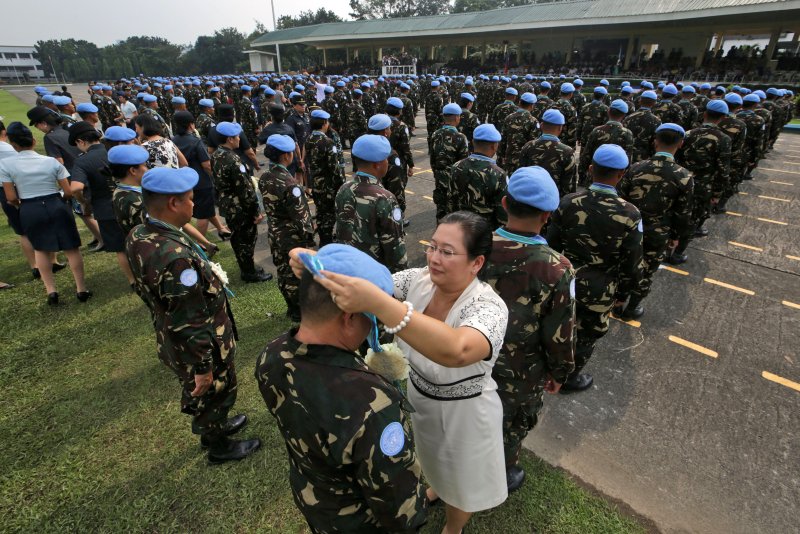The United Nations said blue hats and U.N. flags don't adequately protect peacekeepers. File photo by Ritchie B. Tongo/EPA
Jan. 23 (UPI) -- The United Nations flag and blue helmets do not provide adequate protection to mission personnel, according to a report.
The U.N. referred to peacekeeping as a "risky" activity -- noting that casualties may occur even if all necessary preventive measures are taken.
"The blue helmet and the United Nations flag no longer offer 'natural' protection," the report said.
More than 3,500 peacekeeping personnel have died while in U.N. service since 1948, including 943 killed in acts of violence.
Trends have worsened in the last five years, the deadliest half-decade for peacekeepers in U.N. history. There have been 195 deaths in violent attacks -- including more than a dozen peacekeepers killed in a December anti-government attack in the Democratic Republic of the Congo.
"Unfortunately, hostile forces do not understand a language other than force," the report said. "To deter and repel attacks and to defeat attackers, the United Nations needs to be strong and not fear to use force when necessary."
The report asks the U.N. to provide better training and technology to peacekeepers and offer more discretion to personnel when confronted with violence.
"Missions should also push combat to the night, to take advantage of their superior technology," the report said. "Waiting in a defensive posture only gives freedom to hostile forces to decide when, where and how to attack the United Nations."
A review team visited peacekeeping operations in the Democratic Republic of the Congo, the Central African Republic, Mali and South Sudan, accessed relevant internal U.N. data and conducted 160 interviews to compile the report.
The team said the U.N. and its member nations could also reduce peacekeeper deaths by increasing their accountability. Peacekeepers have come under international criticism in the past and as recently as this fall, when Amnesty International said U.N. personnel in the Democratic Republic of Congo drugged and raped a 19-year-old woman.















